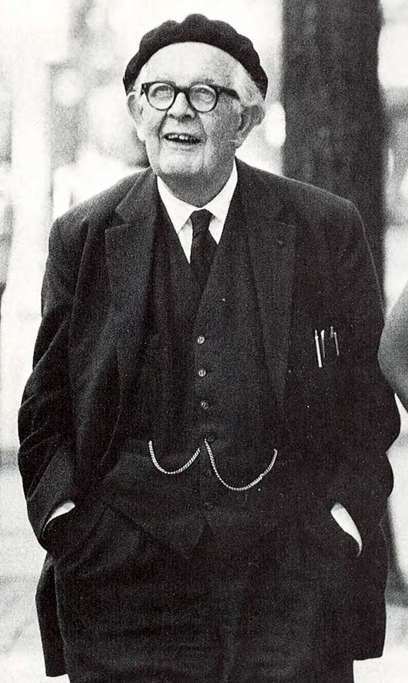2.1 Development is primarily internal: Piaget
Shortly after the First World War a Swiss biologist and teacher named Jean Piaget (1896–1980) became interested in a new method for testing children’s intelligence. Intelligence Quotient (IQ) tests were originally developed by psychologists to identify children in France who were considered to be at risk of learning delays. The test involved presenting children with a series of questions and comparing each child’s individual performance with group averages for the child’s age. Piaget noticed that children of the same age often made the same sorts of errors in consistent ways. This led him to think that children might think about the world in a substantially different way from adults that could not be explained simply through having less experience of the world. Piaget was a prolific researcher and eventually directed one of the world’s first research institutes specialising in examining child development. On the basis of his lifelong work he developed a theory that the thinking of typically developing children matures in distinct stages, meaning that older children are biologically capable of understanding things that those in earlier stages cannot. He believed that children moved through these stages as a result of the accumulated physical experience of interacting with objects in the world – so that their growing abilities are the result of brain maturation as well as encountering experience in their environments.

Piaget was especially interested in how children became able to form mental representations of the world and felt that cognitive development proceeds through a series of predefined biological steps that are stimulated through physical interaction with the world. This theory, because it partially focuses on biological maturation, predicts that all children across the world should go through these stages in the same order and around the same time, regardless of differences in the environment that they are growing up in.
